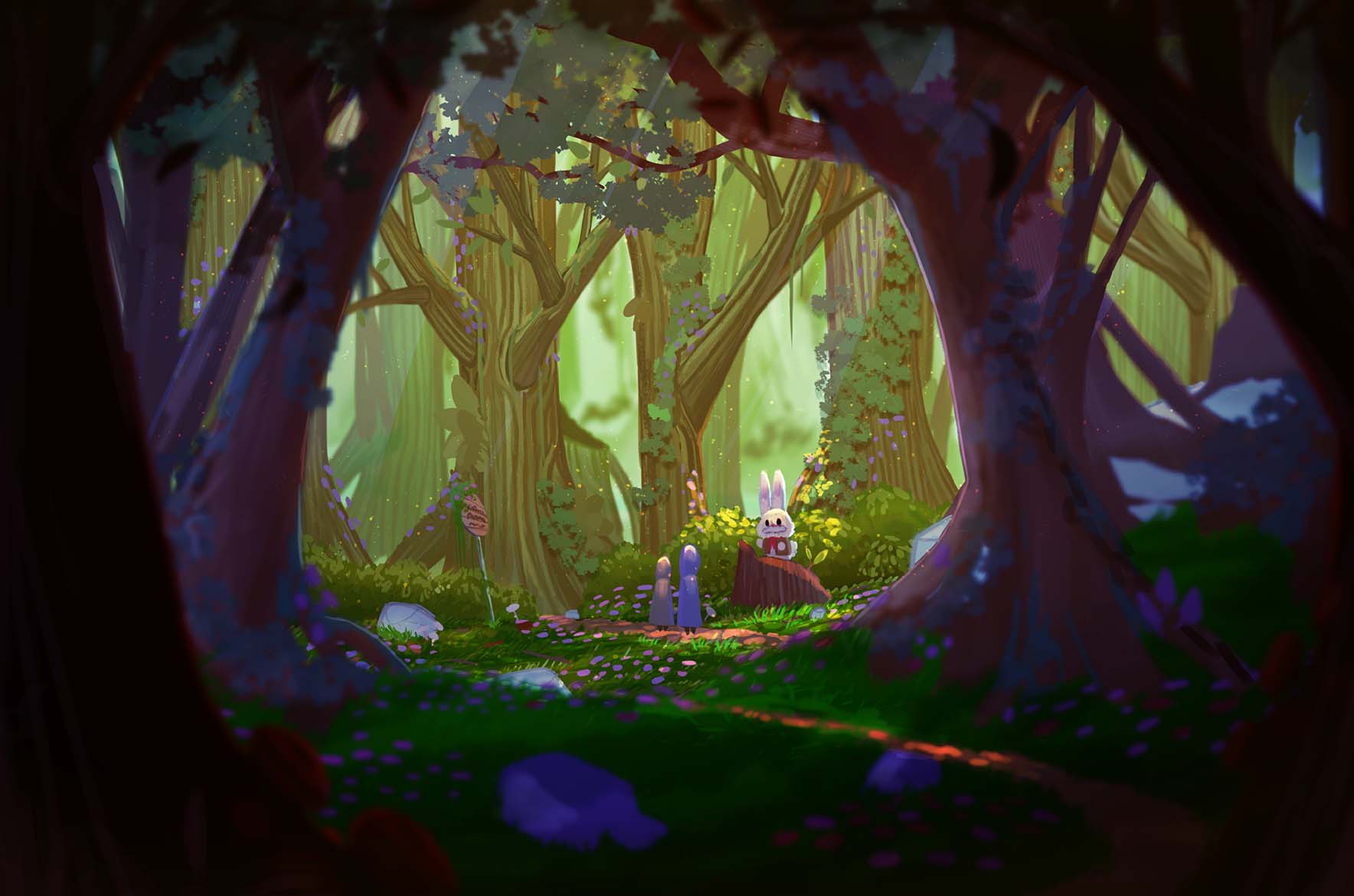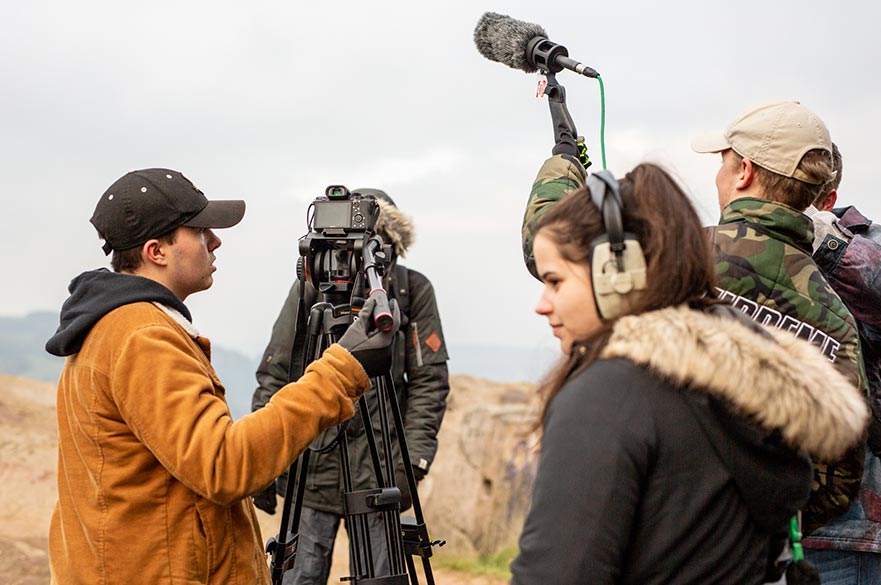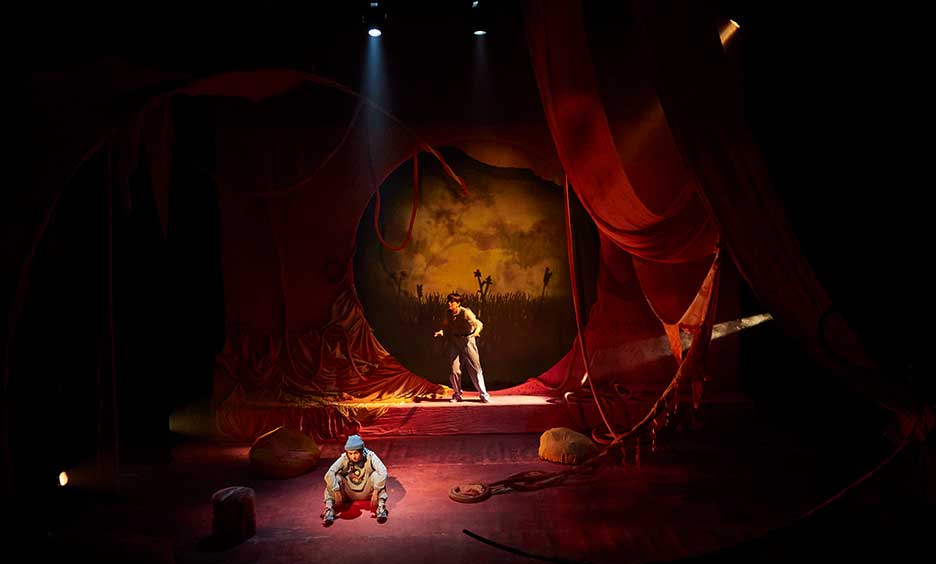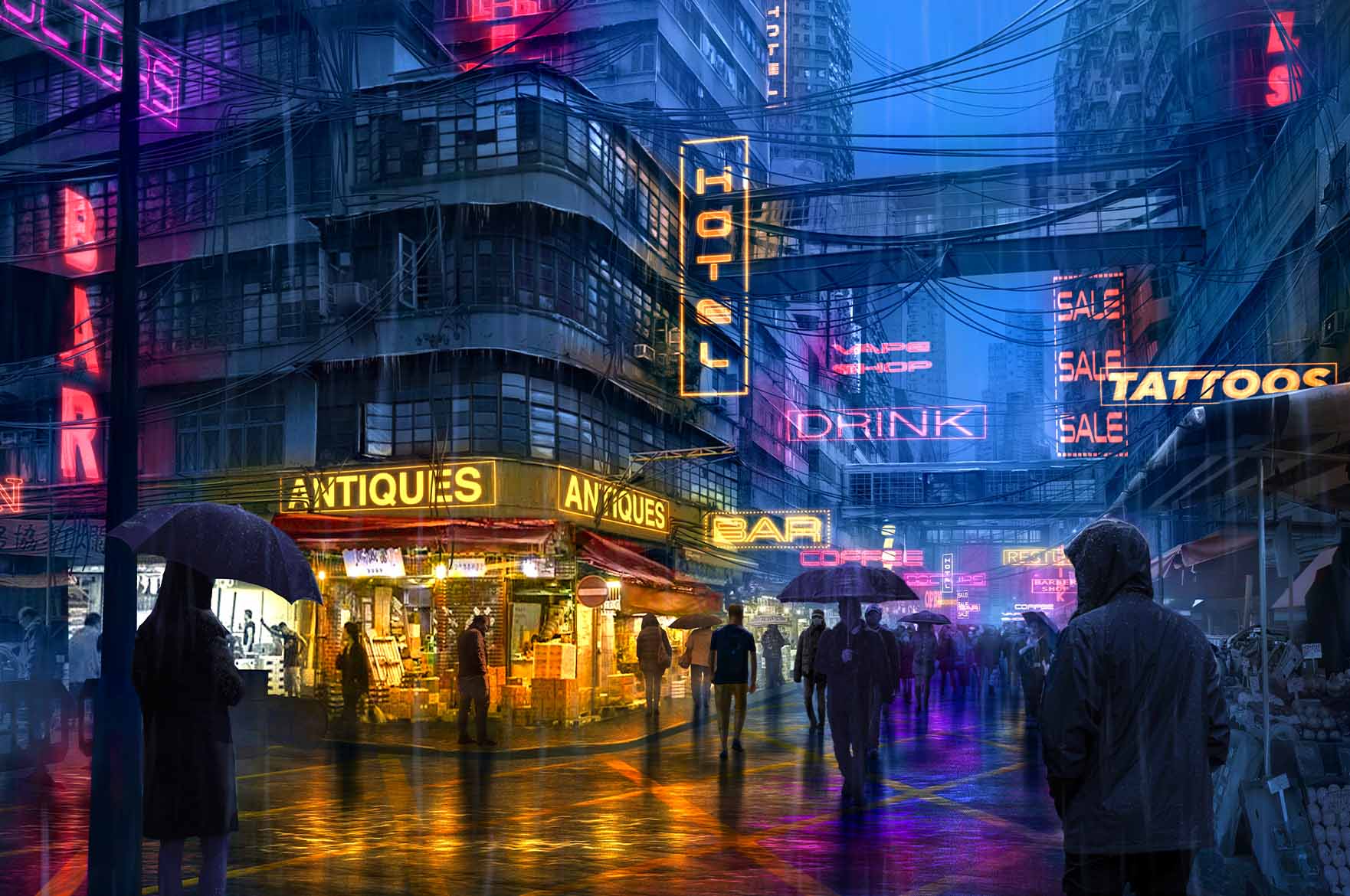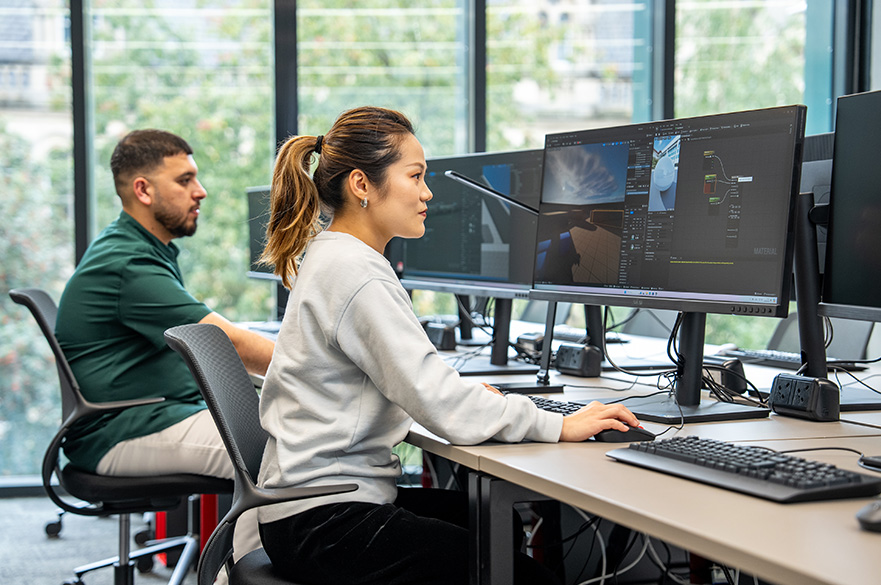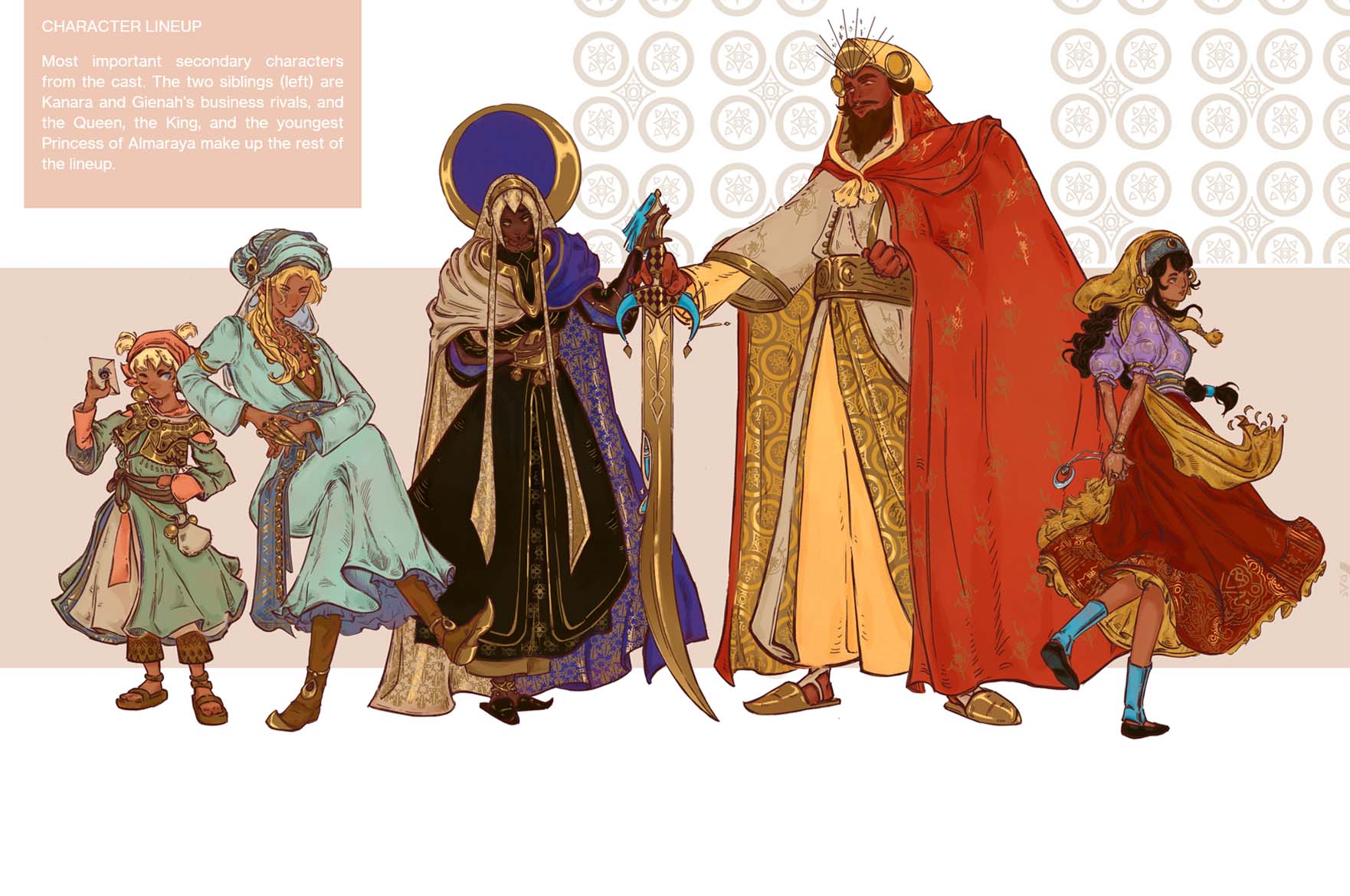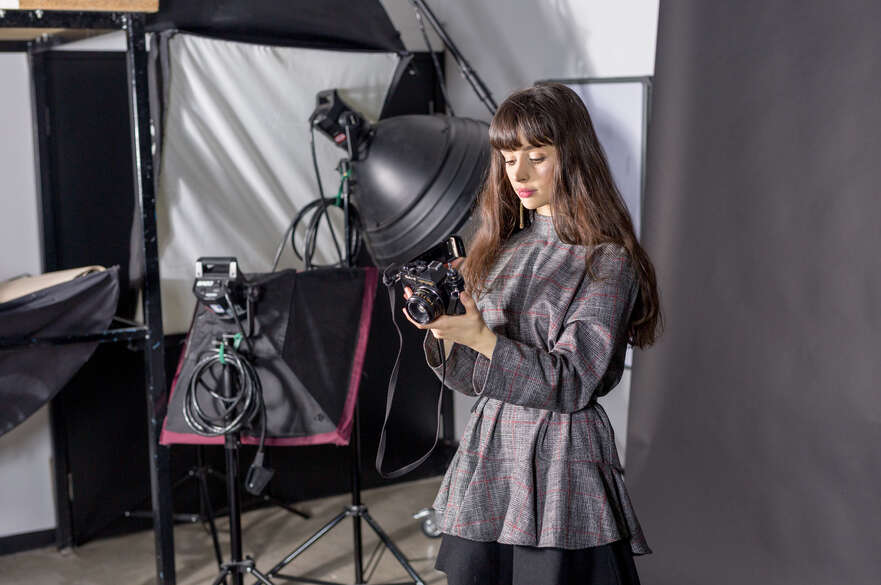This course is in Clearing
Offers from 80 tariff points
About this course
Have you ever marvelled at how realistic a mythical creature looks in a movie, or wondered how a historical show hides all signs of the modern world? Whether you’re a series binger or a film enthusiast, visual effects art defines the look of your favourite shows more than you might expect.
Realistic VFX can make or break a production. With the right resources, technical prowess and artistic talent, storytelling possibilities become limitless – and that’s where you come in.
Visual effects artists are the creatives who conceive and build realistic digital imagery, seamlessly merging it with live action or animated scenes to enhance screen-based storytelling. This VFX course is centred on creating photorealistic believable images for animation, film, and television, combining cinematic codes and conventions with traditional and contemporary art principles. If you’re an artistic visionary who’s keen to learn the craft of visual effects, this degree could be for you.
15
What you’ll study
As a visual effects artist, your work will focus on the aesthetic – whether it’s creating creatures and characters, or designing environments and props, or removing unwanted elements. You’ll take an artistic approach to problem solving, combining digital assets with live action or animated sequences.
Your learning experience is designed to replicate industry ways of working, where you will enjoy creative flexibility giving you a taste of all roles such as environment, prop, character or creature designer - as an environment artist, you will be creating digital assets for our ARRI Virtual Production Stage – and as a compositor of digital imagery.
Here are some study highlights on BA (Hons) Visual Effects Art:
- Get familiar with the same software and equipment used in industry, like Nuke, Houdini, ZBrush and Cintiq graphics tablets.
- Meet active visual effects artists and network with future employers on field trips to award-winning VFX studios and festivals.
- Expand your understanding of art and cinema, drawing upon traditional and contemporary theories and styles to create beautiful, photorealistic digital art.
- Collaborate with VFX technical directors, animators, games artists, filmmaking students and others to create industry-ready work.
- Work alongside professionals on briefs and live projects, provided by industry practitioners who have worked on major productions such as House of the Dragon and Star Wars.
Principles of Screen Art
(40 credit points)
Learn about, and put into practice, the principles of screen art that will serve as the foundation for your course. Throughout this module, you'll sharpen your skills and begin the journey of exploring creative and technical processes within screen-based media. You'll do this with a focus on the core elements of art theory alongside visual or audio storytelling.
Animation and VFX Studies
(40 credit points)
Explore the historical and industrial context of Visual Effects and its wider social, ethical and global themes. Through planning and creation of portfolio and professional assets, you'll begin to develop your understanding of career roles within the industry alongside your professional direction and career goals.
Introducing VFX Compositing
(40 credit points)
Learn about, and put into practice, the basics of composting, pipelines and technical design principles through research and visual or audio storytelling. You will learn about industry-standard creative and technical tools, shooting and prep of live-action plates, the relationship between real and digital lenses, match moving and colour grading.
Introducing 3D Digital Art
(20 credit points)
Gain the skills and knowledge needed to create digital models and designs. You will learn about polygonal modelling, surfacing, and lighting techniques. In addition, workshops on life drawing will strengthen your understanding of the human form, combined with research into traditional visual art forms like painting.
Progressing VFX Compositing
(40 credit points)
Building on the knowledge you developed in Introduction to VFX Compositing, you will further develop your image compositing and cinematic skills through a number of match-to-live exercises. You will be introduced to a range of creative processes and technical tools to demonstrate this including Nuke and Previs.
OR
Progressing 3D Digital Art
(40 credit points)
Based on the 3D skills you developed in Year One, you will progress your abilities and widen your knowledge of digital modelling and lookdev. You will be introduced to digital sculpting and programs such as Substance Painter. Additional workshops in anatomical drawing and clay modelling will reinforce your understanding of 3D form – enhanced by active production research into natural, architectural, prop, and costume detail.
Visual Effects Art Studio
(40 credit points)
The aim of this module is to bring together like-minded Visual Effects students from Visual Effects Art and Visual Effects Technical Direction. Together, you'll work to bring an industry-led brief to life. Each project will be unique and challenge your collaborative skills and technical abilities.
CoLab: Research, Exploration and Risk-taking
(20 credit points)
Through active participation with team-based problem-solving, you will work together in mixed teams on a project where you will use your creative ideas to generate solutions to the challenge or brief. Your project will allow you to explore outside of your usual frames of reference and to move beyond your comfort zone. You can expect to engage in new conversations as you explore disruptive learning opportunities through participation in unfamiliar creative places and experiments as you embrace new opportunities.
Optional Module:
You will also choose one optional 20-credit module from:
- Storyboarding
- Character Ideation
- Motion Graphics
- Digital Matte Painting
- Performance for Motion Capture
- Open-source 3D Art
- Virtual Production
- Prop Making
Optional Placement Year (Sandwich)*
We have an option for all of our students to undertake a placement year (Sandwich) and allow you to decide whether this is right for you once you have completed years 1 and 2 of your course. This time spent working in industry provides our students with crucial work experience, which is highly prized and much sought after by employers upon graduation. If you are successful in securing a placement you will have the chance to gain an additional Certificate or Diploma in Professional Practice, dependent on duration.
The additional placement year incurs a fee. For international students considering the transfer to the 4-yr SW route it’s important to seek advice from the International Student Support team and the Home Office regarding any potential visa implications and costs. For UK students, advice should also be sought regarding SLC eligibility, if applicable.
* If you choose to take the sandwich route option, you will still need to apply for this course with the full-time UCAS code: W204
Visual Effects Art Project
(60 credit points)
Define yourself as a visual effects artist through personal projects. Develop your projects and reflect upon their degree of success either as individual self-directed project/s or as a primary creative on other students’ projects. You'll be challenged to display your mastery of industry-standard digital tools to create stunning visual aesthetics and your ability to critically evaluate technological research to shape your creative direction and decision-making.
Screen Arts Collaboration
(40 credit points)
Building on the collaborative skills you have developed in Year Two, you'll have the opportunity to work with other screen arts students to fully develop a group project with a negotiated outcome or with an industry partner. You'll explore audio and visual storytelling as a group, working as a multi-disciplinary team to effectively respond to a brief.
Visual Effects Professional Futures
(20 credit points)
Assess your previous learning and specialised direction to focus your final year effort towards building your graduate profile. Throughout the module, you will identify and evidence the required professional knowledge and skills aligning with your future goals in your final showcase and reflect upon the progression of your creative and technical processes and outcomes.
We regularly review and update our course content based on student and employer feedback, ensuring that all of our courses remain current and relevant. This may result in changes to module content or module availability in future years.
Video Gallery
How you're taught
From shooting on location and in studios to compositing in high-spec Screen Arts Suites, you’ll get hands-on from day one on this VFX course. You’ll be taught by experienced practitioners, and you can specialise your visual effects art skills with a choice of optional modules in Year Two.
You’ll learn through a mix of:
- lectures and briefings for learning the key principles of visual effects art and receiving briefs
- seminars, which are smaller-group sessions where you’ll learn how to use industry-standard equipment and facilities
- studio workshops for putting your creative skills into practice and bringing projects to life
- tutorials for getting one-to-one guidance from your tutors
- guest lectures from industry professionals working at studios like Realtime UK, MPC, The Mill, DNEG and Union VFX; previous speakers include VFX supervisor and podcaster Hugo Guerrera, and award-winning VFX artist and author Victor Perez
- field trips to visual effects festivals and studio tours, perfect for expanding your industry network – in the past, these have included visits to Industrial Light & Magic and Framestore, as well as London and Bournemouth VFX Festivals.
You can also choose to study abroad for part of your second year on our international exchange programme.
Collaboration across courses
This course offers our new innovative collaboration module. This gives you the opportunity to work collaboratively with your contemporaries from a range of different art and design subjects and beyond. You’ll be working alongside artists, designers, photographers, illustrators, animators, and filmmakers on daring and creative projects that prepare you for a rewarding career in your chosen industry. Your project will allow you to explore how creativity can make an impact in society, as you choose a theme of sustainability, social justice, enterprise and innovation or community.
Showcase
You will be given the opportunity to exhibit your work during your time at NTU to members of the creative industries. Visit our ‘We Are Creatives’ showcase to take a look at the work of this year's graduating students’.
How you're assessed
As a visual effects artist, you’ll be assessed primarily on how good your work looks, its complexity, and how well it fits the brief. When you collaborate with students from other courses on shared projects, you’ll be assessed on your responsibilities as the project’s VFX artist.
You will be assessed via:
- visual portfolios showcasing your skills, which you’ll eventually use to impress future employers
- essays and case studies demonstrating your understanding of art techniques and best practices
- presentations to the industry stakeholders who set your briefs.
Careers and employability
In today’s landscape of competitive streaming services, high-quality visual effects make productions stand out and draw in global audiences. Visual effects artists are in demand – not only in film and animation, but also in gaming, live events, advertising and interactive media.
On this VFX course, you’ll learn specialised skills which can be applied to any genre, from big-budget historical and fantasy films to independent productions. Whilst you’ll gain all the transferable skills needed to enter a wide range of sectors, this degree will open doors to jobs such as image prep artist, compositor, creature designer and more, making you a vital part of any VFX production.
Previous graduates have gone on to work as :
- 3D Environment Artist at WorldWide VFX (visual effects house)
- Matte Painter at Pixomondo (Oscar, BAFTA & Emmy-winning creative technology company)
- Paint & Roto Artist at Framestore (multi-sector creative studio)
- Environment / 3D Digital Matte Painting Artist at Union VFX (BAFTA-winning VFX facility)
- Junior VFX Artist at Double Eleven (independent games studio)
You’ll be supported by NTU’s award-winning Employability team for up to three years after you leave us, and be able to access our comprehensive online career resources for life. You can also benefit from our Employability Promise.
Creative Industries Federation
We are members of the Creative Industries Federation (CIF), which means students in the Nottingham School of Art & Design have the opportunity to sign up to free student membership. Creative Industries Federation are an organisation that represents, champions and supports the UK’s creative industries and membership grants students exclusive access to their selection of resources and events to help advance your career and connect with industry.
Campus and facilities
As a VFX art student, you’ll be based in our new Design and Digital Arts Building. It’s a truly professional environment, jam-packed with industry-standard facilities and technology, where you’ll mix with fellow creatives from a whole host of fields. You’ll be able to access everything here, regardless of your course – from high-spec computer suites and green screen rooms to art studios and creative breakout spaces. During your VFX art course, the facilities you’ll use most are:
- Screen Arts Suites with top-of-the-rangeCintiq graphics tablets and high-end monitors for developing your VFX projects
- Black Box Studio, purpose-built for motion capture and more
- Green Screen Studio for compositing imagery
- ARRI Virtual Production Stage, delivered by creative technology giant ARRI and available to all our VFX students.
Our City Campus has everything you’ll need to keep occupied between lectures. As well as the Boots Library and its beautiful roof garden, there’s a 100-station gym; convenient cafés, bars and restaurants; our Students’ Union and popular Global Lounge; and much, much more!
If that’s not enough, just take a few steps off campus, and you’ll find yourself in the beating heart of Nottingham: one of Britain’s top 10 student cities, and a hub of creative activity and industry. Get inspired at the charming and budget-friendly Broadway Cinema, cultural hotspots like Nottingham Contemporary and Theatre Royal, and the city’s vast array of trendy independent shops, restaurants and bars.
Entry requirements
This course is in Clearing
Looking for a place in Clearing? We are accepting application and would love to hear from you!
UK students
This course is in Clearing
Looking for a place in Clearing? We are accepting applications and would love to hear from you!
Clearing requirements
From 80 UCAS tariff points from up to 4 qualifications.
To discuss our entry requirements and see what we can offer you, call us now on +44 (0)115 848 6000. Alternatively, if you already have your qualifications, apply online via our Clearing Application form.
Preparing for results day? Beat the queue and sign up for NTU Priority for up-to-date information about all things Clearing. You’ll get an offer ahead of Clearing, subject to you achieving the required grades on results day.
To find out what qualifications have tariff points, please use our tariff calculator.
Additional requirements for UK students
There are no additional requirements for this course.
Contextual offers
If you don’t quite meet our entry requirements, we might be able to make you a lower offer based on a range of factors, including your background (such as where you live and the school or college you attended), your experiences and your individual circumstances (you may have been in care, for example). This is called a contextual offer, and we get data from UCAS to help make these decisions. We do this because we believe everyone with the potential to succeed at NTU should have the opportunity to do so, no matter what barriers you may face.
Meeting our entry requirements
Hundreds of qualifications in the UK have UCAS Tariff points attached to specific grades, including A-levels, BTECs, T Levels and many more. You can use your grades and points from up to four different qualifications to meet our criteria. Enter your predicted or achieved grades into our Tariff calculator to find out how many points your qualifications are worth.
Other qualifications and experience
NTU welcomes applications from students with non-standard qualifications and learning backgrounds, either for year one entry or for advanced standing beyond the start of a course into year 2 or beyond.
We consider study and/or credit achieved from a similar course at another institution (otherwise known as credit transfer), vocational and professional qualifications, and broader work or life experience.
Our Recognition of Prior Learning and Credit Transfer Policy outlines the process and options available for this route. If you wish to apply via Recognition of Prior Learning, please contact the central Admissions and Enquiries Team who will be able to support you through the process.
Getting in touch
If you need more help or information, get in touch through our enquiry form.
International students
This course is in Clearing
Looking for a place in Clearing? We are accepting applications and would love to hear from you!
Clearing requirements
From 80 UCAS tariff points from up to 4 qualifications.
To discuss our entry requirements and see what we can offer you, call us now on +44 (0)115 848 6000. Alternatively, if you already have your qualifications, apply online via our Clearing Application form.
Preparing for results day? Beat the queue and sign up for NTU Priority for up-to-date information about all things Clearing. You’ll get an offer ahead of Clearing, subject to you achieving the required grades on results day.
We accept equivalent qualifications from all over the world. Please check your international entry requirements by country.
English language requirements: See our English language requirements page for requirements for your subject and information on alternative tests and Pre-sessional English.
Additional requirements for international students
If you need help achieving the academic entry requirements, we offer a Foundation preparation course for this degree. The course is offered through our partner Nottingham Trent International College (NTIC) based on our City campus.
English language requirements
View our English language requirements for all courses, including alternative English language tests and country qualifications accepted by the University.
If you need help achieving the language requirements, we offer a Pre-Sessional English for Academic Purposes course on our City campus which is an intensive preparation course for academic study at NTU.
Other qualifications and experience
If you have the right level of qualifications, you may be able to start your Bachelors degree at NTU in year 2 or year 3. This is called ‘advanced standing’ entry and is decided on a case-by case basis after our assessment of your qualifications and experience.
You can view our Recognition of Prior Learning and Credit Transfer Policy which outlines the process and options available, such as recognising experiential learning and credit transfer.
Sign up for emails
Sign up to receive regular emails from the International Office. You'll hear about our news, scholarships and any upcoming events in your country with our expert regional teams.
Getting in touch
If you need advice about studying at NTU as an international student or how to apply, our international webpages are a great place to start. If you have any questions about your study options, your international qualifications, experience, grades or other results, please get in touch through our enquiry form. Our international teams are highly experienced in answering queries from students all over the world.
Policies
We strive to make our admissions procedures as fair and clear as possible. To find out more about how we make offers, visit our admissions policies page.



